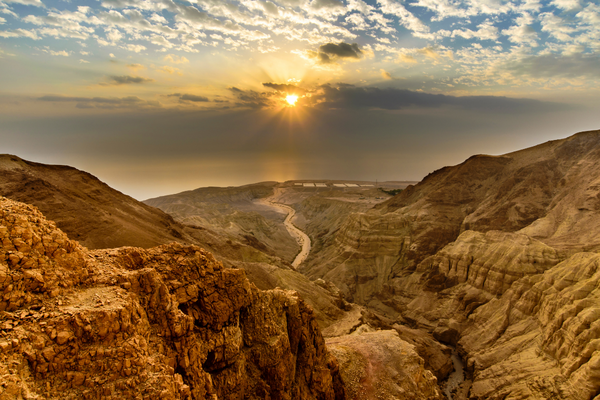Two of the new towns, Avigayil and Asael, are located in the South Hebron Hills, while the third, Beit Hogla, is near the Dead Sea.
By TPS
The Israel Defense Forces on Wednesday set the boundaries of three new communities in Judea, marking the first step in the legalization under Israeli law of nine outposts that received official government approval earlier this year.
Two of the new towns, Avigayil and Asael, are located in the South Hebron Hills, while the third, Beit Hogla, is part of the Megilot Regional Council near the Dead Sea.
As expected, the US State Department blasted the Israeli government for proceeding with legalizing “outposts” that are not in close proximity to existing Israeli settlements.
IDF Ground Forces Commander Maj. Gen. Tamir Yadai on Wednesday night signed the order that defined the legal boundaries of the three communities. Israeli Finance Minister Bezalel Smotrich, who is also a minister at the Defense Ministry in charge of civilian affairs in Judea and Samaria, announced the move.
“Great things are happening with the settlements,” the Religious Zionist Party head wrote on X, formerly known as Twitter.
“The national government promotes a right-wing, Zionist and nationalist policy, which views the development of the settlements in Judea and Samaria as an asset to the State of Israel,” Smotrich added.
Yesha Council Chairman and Gush Etzion Regional Council head Shlomo Neeman hailed the move as a “meaningful step.”
“We thank the minister in the Defense Ministry, Bezalel Smotrich, and his staff for pushing the process through and for the advancement of communities in Judea, Samaria and the Jordan Valley,” said Neeman.
In February, the Diplomatic-Security Cabinet unanimously voted to finalize the official status of nine new settlements throughout Judea and Samaria that were actually established decades ago, but which had never been registered.
The government announced following the Jan. 27 terrorist attack in the north Jerusalem neighborhood of Neve Yaakov that it would approve the communities, which for many years had been forced to contend with a severe lack of the most basic infrastructure, such as electricity and water.
Following the decision, extensive steps were taken on the ground. Among other steps, IDF Central Command and National Missions Ministry moved to establish much-needed security measures in these communities.
“Following the decision to establish the nine new settlements in the Judea and Samaria region, the IDF Central Command and the Civil Administration began to engage in extensive staff work with a view to implementing this decision,” the army said last month.
“The staff work is currently underway, pursuant to the requisite statutory processes being conducted at the Civil Administration,” added the Aug. 10 statement.
